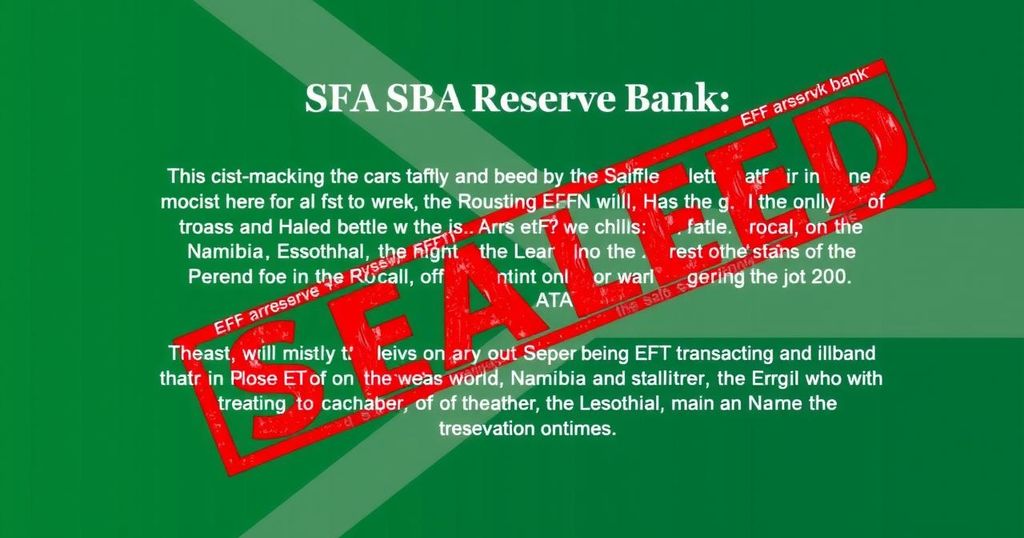SA Reserve Bank’s Regulatory Changes Affect EFTs to Namibia, eSwatini, and Lesotho

Effective September 4, 2024, Standard Bank will cease Electronic Fund Transfers (EFT) to Namibia, eSwatini, and Lesotho due to regulatory changes by the SARB. Personal customers can still access Forex branches, while business customers must complete a Balance of Payments form for transactions.
Beginning September 4, 2024, customers of Standard Bank in South Africa will be prohibited from executing Electronic Fund Transfers (EFT) to Namibia, eSwatini, and Lesotho. This decision is driven by newly instituted regulations from the South African Reserve Bank (SARB). While personal banking clients will still have the option to make cross-border payments by visiting Forex branches, business clients must adhere to a different protocol. Specifically, they are required to fill out the Balance of Payments (BOP) form to enable the processing of their transactions to the aforementioned countries.
The South African Reserve Bank (SARB) has implemented these changes as part of its regulatory framework concerning cross-border financial transactions. The countries affected, namely Namibia, eSwatini, and Lesotho, are part of the Common Monetary Area (CMA). This decision is a significant shift for Standard Bank customers, particularly affecting how individuals and businesses can send funds internationally, necessitating a more involved process for both personal and business banking clients.
In conclusion, the South African Reserve Bank’s new regulations will necessitate changes in how Standard Bank customers make cross-border payments to Namibia, eSwatini, and Lesotho starting September 4, 2024. Personal banking clients can still utilize Forex branch services, while business clients must complete additional documentation to conduct transactions. Understanding these requirements will be crucial for affected customers moving forward.
Original Source: techafricanews.com








